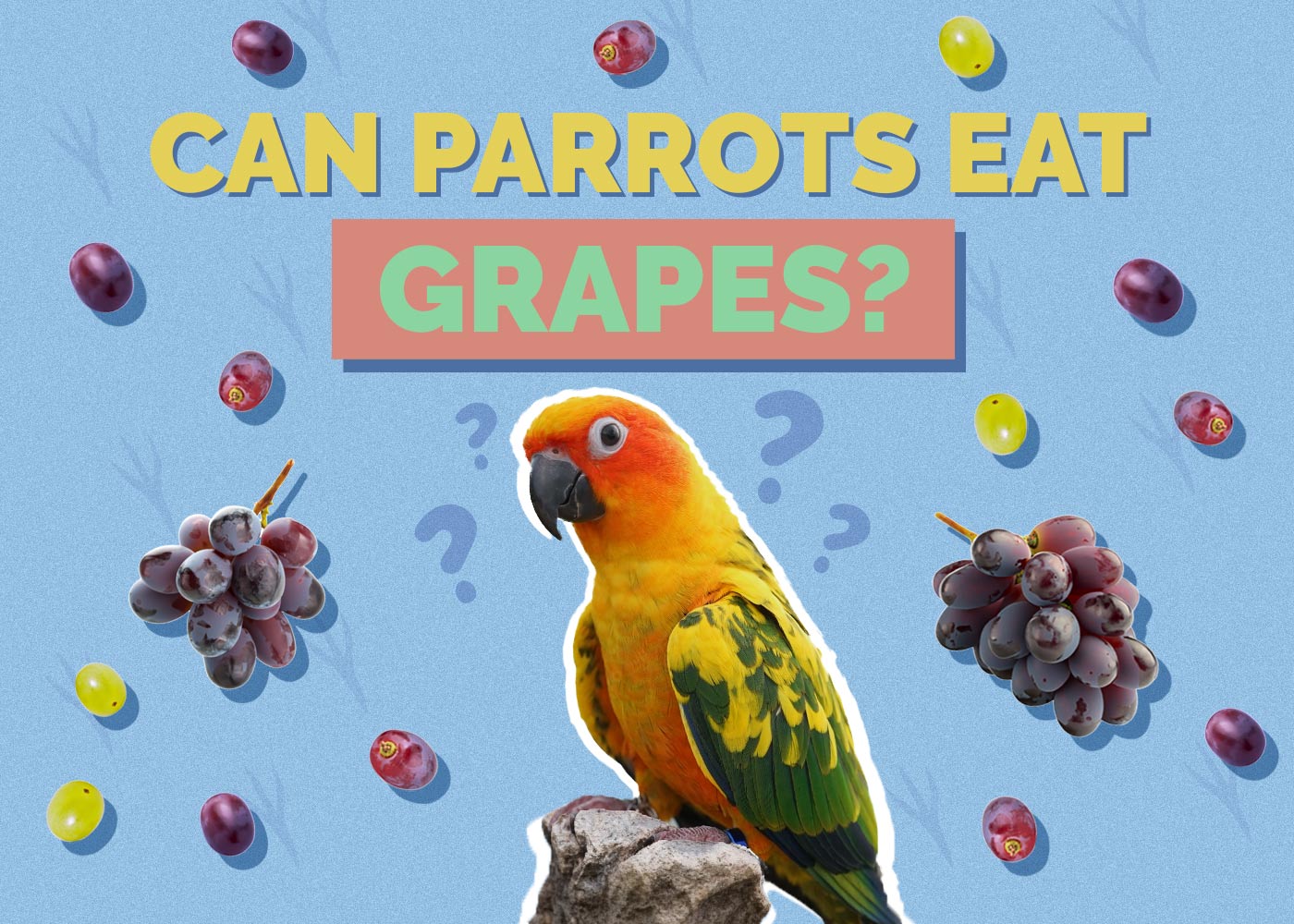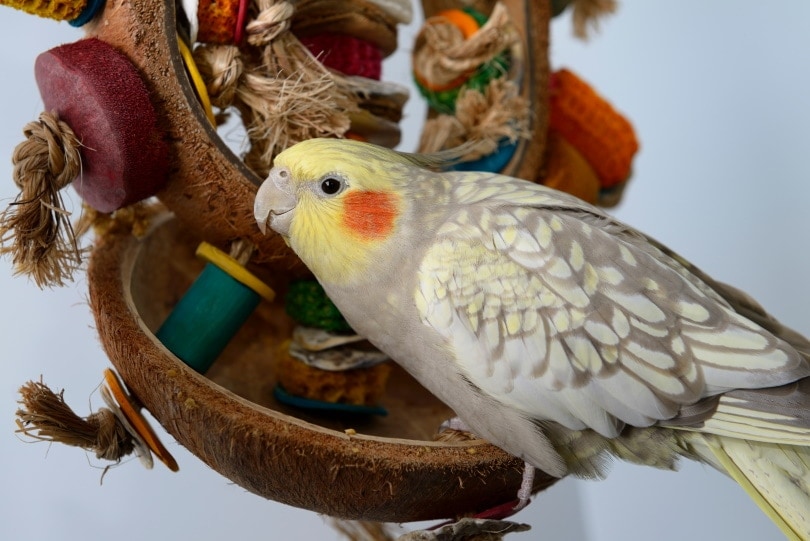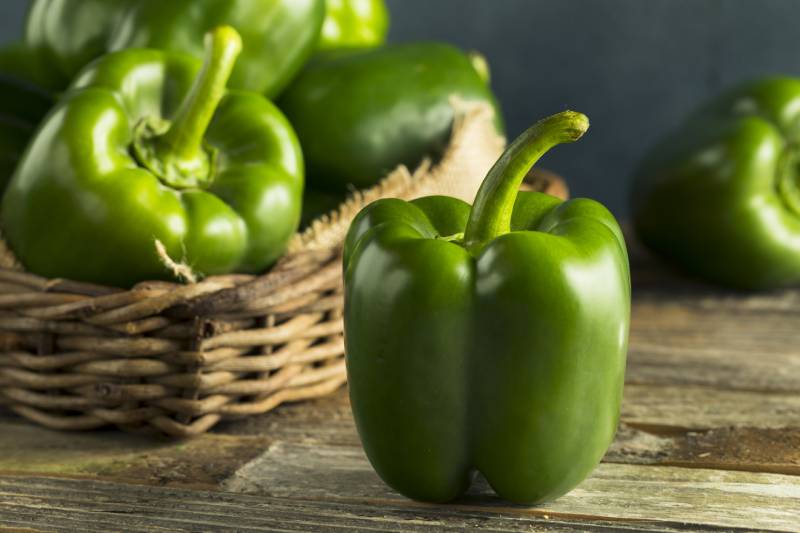Why Do Parrots Bob Their Heads? 9 Reasons & FAQ
By Ed Malaker
Updated on

Parrots are amazing pets with long lifespans, which means they can be our companions for many years. They are extremely colorful and friendly birds that can learn to speak words and even complete sentences. They also have many strange behaviors, and one of the oddest is when they bob their heads up and down, usually in greeting or when they’re curious about something. If you are interested in learning about other reasons that they do this, read on!

The 9 Reasons Why Your Parrot Is Bobbing Their Head
1. Greeting and Acknowledgment
Head bobbing can serve as a greeting and a way to say hello to humans and other birds. Parrots will also communicate using their wings and other body parts and through various sounds, including imitating the human language.
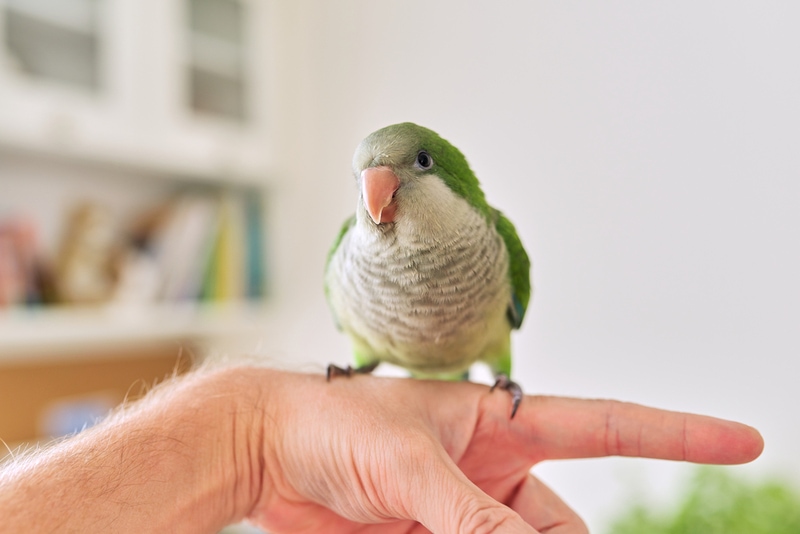
2. Expressing Comfort
Parrots may bob their heads in a social setting to express comfort and contentment. A happy parrot will also maintain a relaxed posture as you approach them and likely won’t mind if you pet them on the neck to show affection.
3. Bonding
Parrots that have close relationships with their human caregivers often use head bobbing as a means of bonding. When a parrot nods their head in your presence, it’s a sign of trust and affection.
4. Excitement and Enthusiasm
Just like humans might dance or jump for joy when excited, parrots may bob their heads vigorously to show their enthusiasm for a particular activity or event, such as mealtime or the arrival of a new or favorite toy.

5. Stress and Anxiety
Unfortunately, head bobbing can be a response to stress or anxiety. Some parrots may engage in this behavior when they’re feeling uncomfortable or threatened. You will often see it when a new cage mate arrives or if something or someone enters the room that they are unsure about.
6. Attracting a Mate
Male parrots in particular use head bobbing to court females. The rhythmic movement is a way of displaying their fitness and desirability as a potential mate. Mating season usually starts in early spring, and you will likely see an increase in head bobbing during this time, especially if you have male and female birds.
7. Mutual Head Bobbing
When a male parrot finds a potential mate, observers will frequently see both sexes bobbing their heads in unison in what many experts believe to be a bonding ritual between the two birds.
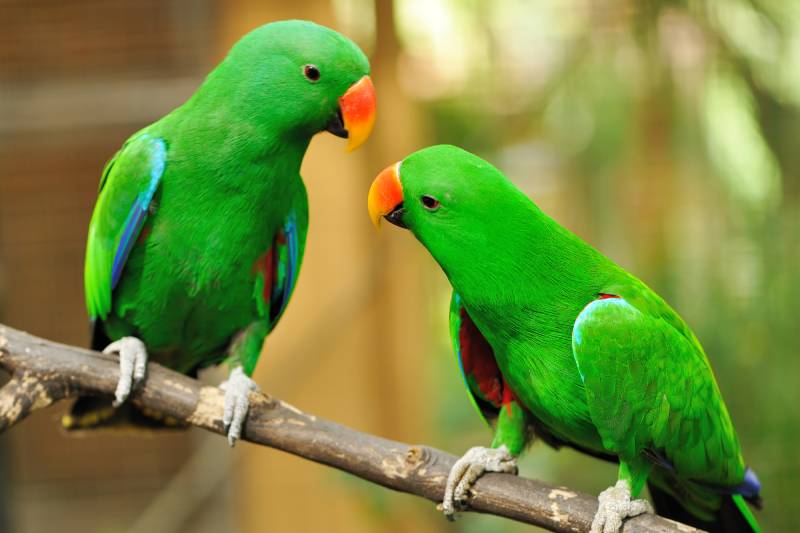
8. Curiosity
Parrots are naturally curious, and head bobbing enables them to explore their environment and gain new perspectives. You might see an increase in head bobbing any time you move your bird to a new location or let them out of the cage to explore your home.
9. Problem-Solving
Some parrots engage in head bobbing when faced with a problem or puzzle. It’s as if they are using this behavior to brainstorm and come up with solutions, and it quite frequently seems to work for them, as they are quite intelligent and are one of the few animals besides humans and primates that will use tools to solve a problem.

FAQ
Is Head Bobbing in Parrots a Sign of Illness?
Not necessarily. While changes in behavior can sometimes be a sign of illness in parrots, head bobbing is a natural behavior often unrelated to health issues. However, if your parrot is showing other signs of illness, like discolored droppings, a decrease in energy, or sudden, unexplained weight loss, call the vet immediately to schedule an appointment to get them checked out.
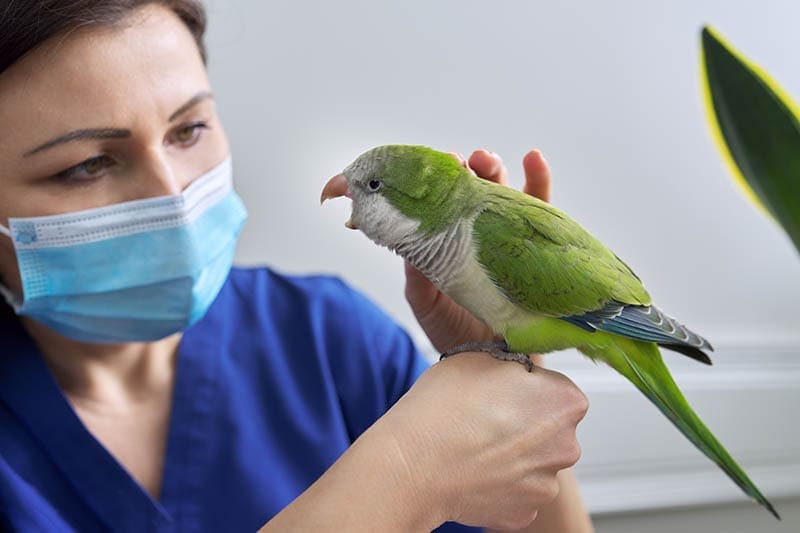
Do All Parrot Species Bob Their Heads?
No, not all parrot species exhibit head-bobbing behavior. Some species differ from others, and the extent of head bobbing can vary between individuals, even within the same species.
Is Head Bobbing a Sign of Aggression in Parrots?
Head bobbing is generally not a sign of aggression in parrots. It is more commonly associated with positive emotions like excitement, bonding, and courtship. Parrots often display aggression through other actions, such as biting or aggressive posturing.
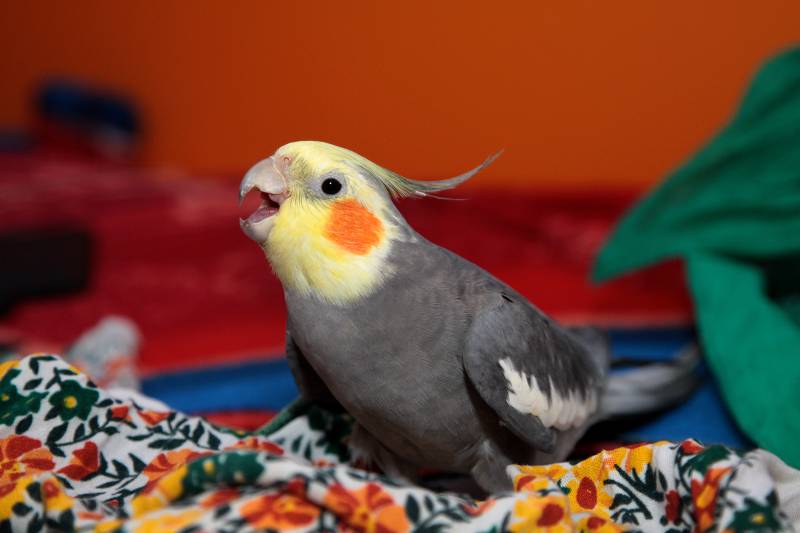
How Can I Tell If My Parrot’s Head Bobbing Is a Sign of Happiness or Distress?
Understanding your parrot’s context and overall body language is essential in determining whether head bobbing signifies happiness or distress. A happy parrot may exhibit relaxed body language, vocalizations, and a playful demeanor, while a distressed parrot may display signs of fear, aggression, or stress.
Can Head Bobbing Change With Age in Parrots?
Head bobbing can change with age in parrots. Younger parrots may be more playful and bob their head during play, while older parrots may use it more for social bonding and courtship. It can also vary based on the individual parrot’s personality and experiences.
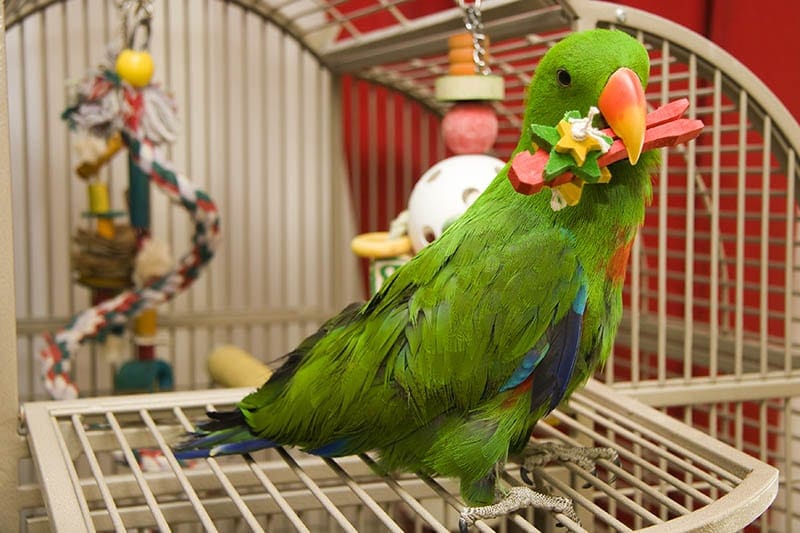
Summary
Parrots bob their head for several reasons and might do it to greet you or another bird. They may also do it when trying to bond or attract a mate solve a problem in their heads or when they are excited about something. The good news is that head bobbing is usually not a sign of aggressive behavior or a health problem.
Since head bobbing can vary between individuals, it’s best to watch your bird closely to learn their behavior to understand better when they are more prone to do it.
- See Also: Why Do Parrots Dance? Facts & FAQ
Featured Image Credit: Saurabh13, Shutterstock

